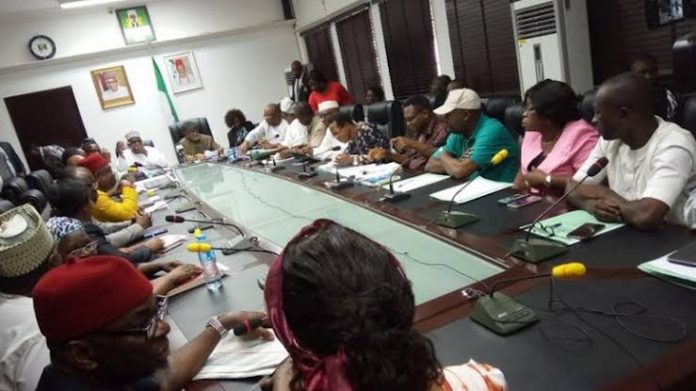The federal government, on Tuesday, failed to reach an agreement with the Non-Academic Staff Union (NASU) and the Senior Staff Association of Nigerian Universities (SSANU), to back down on its proposed indefinite strike.
The joint action committee (JAC) of both unions had announced plans to commence an indefinite strike on February 5, if the federal government fails to meet their demands.
Among issues raised by the unions include inconsistencies in IPPIS payment, non-payment of earned allowances and delay in the renegotiation of FGN/NASU and SSANU 2009 agreement, and non-payment of retirement benefits.
Others are neglect and poor funding of universities, as well as non-constitution of visitation panels for tertiary institutions.
Speaking with reporters after a meeting with the federal government delegation on Tuesday, Peter Adeyemi, general secretary of NASU, said some issues bordering on the strike were not finalised at the meeting.
“As a result of that development, we asked that the government should allow us time to meet our members and seek a further mandate. Clearly, the agenda of the meeting has not been exhausted, so there are still issues to be addressed. In fact, one of the most contentious issues is yet to be discussed,” he said.
“We are favourably disposed to dialogue and after discussing with our members, we will come back and continue with the discussion. So far, nothing has been concluded.
“We don’t have the mandate to talk about suspending the strike. That’s not within our competence. The mandate of our members stands until they ask us to reverse it.”
However, Chris Ngige, minister of labour and employment, said “reasonable progress” was made at the meeting.
“The deliberations were fruitful. Government side responded to issues concerning IPPIS and what is being done to assist university workers (non-academic workers), who have had some complaints in that direction, especially some of the allowances they said were chopped off by IPPIS system,” he said.
“We were satisfied that reasonable progress has been made. It’s a work in progress.”


